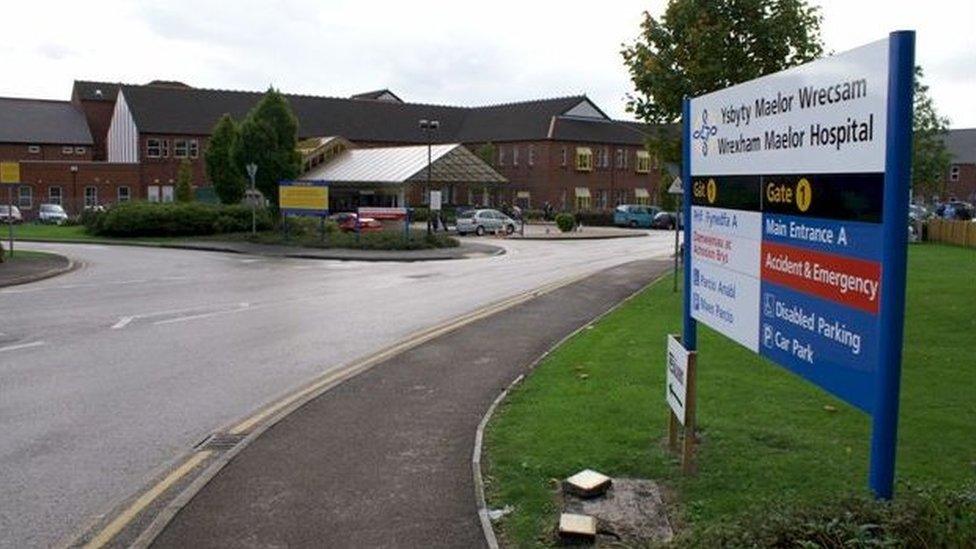Wrexham Maelor bed blocking 'creating risk', coroner says
- Published

Bed blocking is "creating a risk" at Wrexham Maelor Hospital, a coroner has said after the death of a woman who spent eight hours on an A&E trolley.
Sarah Ann Tyler, 39, died after being admitted to the emergency department with an overdose of pills in 2015.
At her inquest, coroner John Gittins said he did not believe demand for beds played a part.
But he asked Betsi Cadwaladr Health Board to outline what was being done to tackle it.
Mr Gittins, the coroner for north Wales east and central, decided to issue a Regulation 28 notice - which allows questions to be asked of an authority and a report issued when there is a risk of future deaths.
Earlier, he heard the situation at the hospital was probably worse today than two years ago.
'Massive challenge'
Julie Smith, assistant director of nursing with the health board, said demand for beds constantly exceeded supply despite various efforts to solve the problem.
"It is an absolutely massive challenge but we are doing our best to manage the pressure," she said.
The inquest at Ruthin heard Miss Tyler, a mother-of-four from Wrexham, was found unconscious with a cable around her neck in the early hours of 9 February 2015.
She had been suffering from depression and severe ME, which had left her bed-bound, the coroner was told.
In a statement read at the inquest, her partner David Millward said she was virtually unable to move and was upset at being unable to care for her children.

The inquest heard she had twice previously been found with items around her neck.
On the day before she died, she took an overdose of pills in a doctor's presence and was admitted to the emergency department, where she refused to engage with staff.
While lying on the trolley, she disconnected her intra-venous drip several times, claiming it had fallen out.
Staff nurse Kate Roberts said Miss Tyler was under half-hourly observation because of the tablets she had taken and was last seen at about 00:20 GMT on 9 February.
About 15 minutes later she was found hanged and, despite attempts to resuscitate her, she died the following day.
Mrs Smith, who was involved in the serious incident review following the death, said various steps had been taken as a result.
'Reduced the risk'
Asked by the coroner whether such an incident was less likely to occur now, Mrs Smith replied: "Yes, I believe we have reduced the risk, though the improvements are on-going."
Mr Gittins said his initial fears about the observation of patients had been allayed but he remained concerned about the problem of finding beds for patients, even though he did not believe it was responsible for Miss Tyler's death.
"Patient throughput continues to be a problem and, perhaps, even greater now than it was two years ago. I believe it does create a risk," he added.
He said he was not persuaded Miss Tyler wanted to kill herself, as she had taken the action in a place where she could have expected to be found.
The coroner recorded a conclusion of accidental death.
- Published6 January 2017

- Published25 November 2016

- Published27 June 2016
